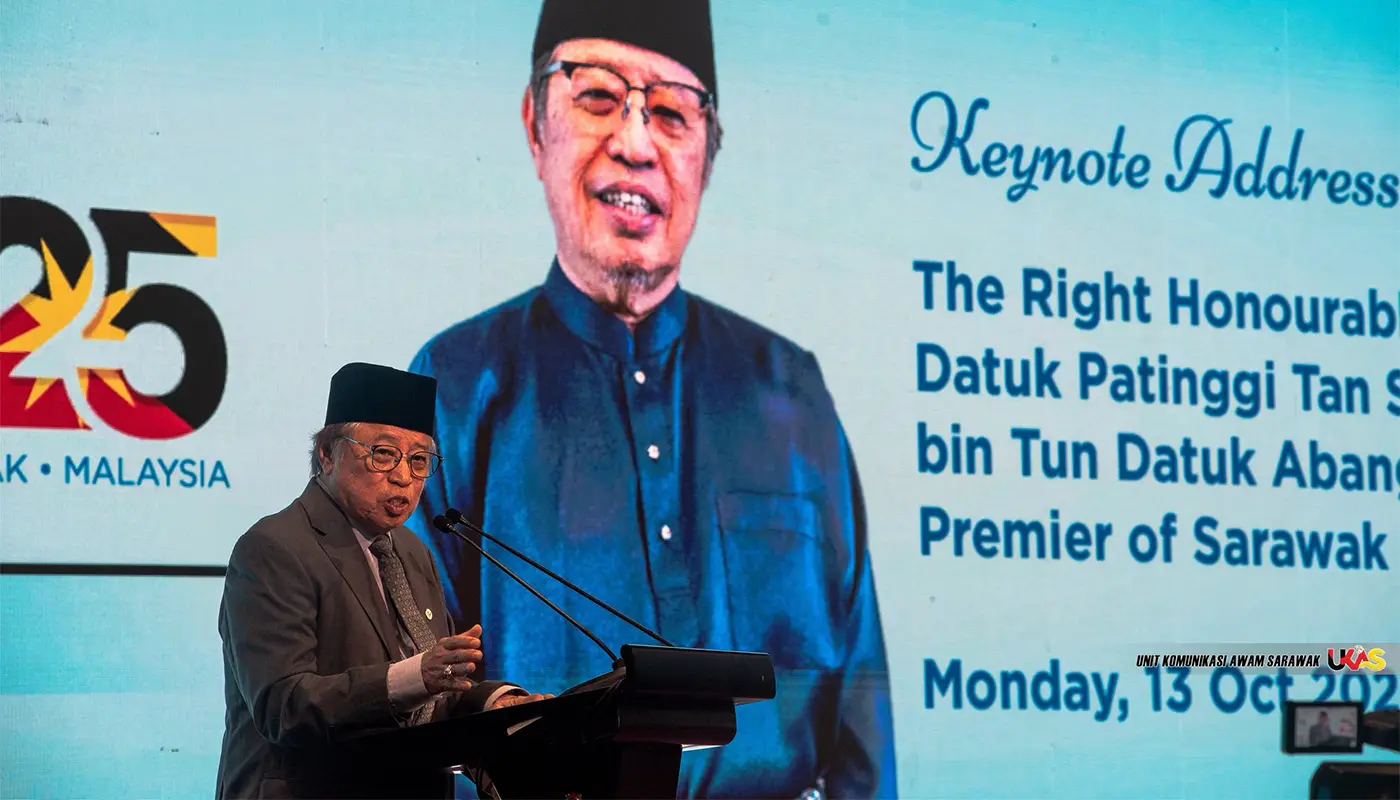KUCHING – The concepts of zakat and waqf are powerful instruments for fostering sustainable economic growth and inclusive development within Muslim communities, the Sarawak Premier declared at a major international gathering.
Datuk Patinggi Tan Sri Dr. Abang Johari Tun Openg articulated this vision during the opening of the 14th World Zakat and Charitable Trusts Forum (WZWF).
He explained that when properly managed and understood, these religious practices transcend mere obligation to become strategic economic tools.
“Zakat is actually a wealth distribution mechanism,” he stated before attendees at the Sarawak Smart Trade Centre.
He detailed how rising incomes lead to increased zakat contributions, thereby creating a positive cycle of wealth redistribution that benefits the wider community’s economy.
The Premier further clarified that this approach aligns with the Islamic principle that property is a trust from God, to be utilised for the common good.
On the subject of waqf, or religious endowment, he described it as the strategic management of assets, including property and natural resources, for lasting communal benefit.
He cited Sarawak’s own initiatives, where modernised waqf practices are being applied to resources like land, water, and renewable energy.
These projects, he noted, are designed to yield benefits for both local populations and the broader ASEAN region.
Abang Johari also stressed the critical need for Muslims to deepen their understanding of these concepts and to apply their principles within the contemporary economic landscape.
This, he said, requires institutional collaboration and focused human resource development. He framed wealthier Muslims as trustees with a responsibility to reinvest in their communities through these mechanisms.
The three-day forum, which coincides with the Sarawak Islamic Council (MIS) 70th anniversary, has drawn global experts to discuss innovative solutions for zakat and waqf in a changing world.





